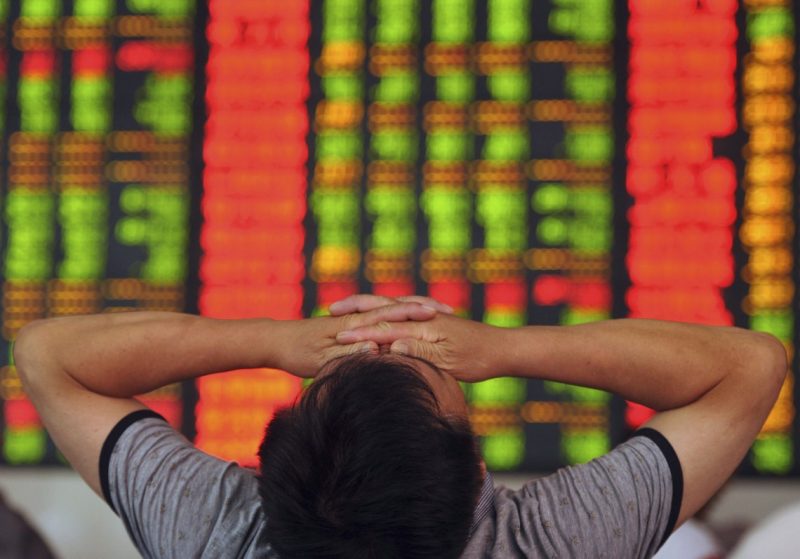China’s economic slowdown has affected trade in Indonesia and the value of the rupiah. The archipelago could be set for another tough year.
China’s economic turmoil has created a ripple effect across the world. Last year, Indonesia was one of the countries hit badly by China’s woes, as low commodity prices and weak demand from China contributed to a prolonged economic slowdown in Indonesia.
With the China situation still not showing signs of improvement, Indonesia is bracing itself for another tough year ahead.
Experts have said that given the incredible levels of China’s growth rate for the last three decades, it was inevitable that things would start to wane. However, China’s deceleration last year was sharper than anticipated. In the first quarter, the country cut its annual growth target to 7 percent, marking the slowest expansion in more than two decades.
The Economist explains that changes in China’s labour, capital, and productivity – the three factors that drove its growth in recent years – are now the primary causes of its struggle. Both China’s working-age population and investment realization seemed to have peaked sometime in the last five years. China’s technological gap with other rich countries is also narrower than it was in the past, implying that productivity growth too will be lower.
China is now seeing new problems, but is also struggling to shift to a new economic growth model, which experts say should be based on innovation, domestic consumption, higher-end manufacturing, and services.
As a result, China has been experiencing slowed economic growth, weakened purchasing power, and declining activity in its manufacturing and services sector. This naturally also means falling demand for imports.
Just when the world hoped the New Year would finally spell stability for China, matters came to a head at the start of 2016 when China’s problems set off a global stock market rout. The Shanghai composite benchmark plunged by 7 percent within half an hour, prompting trading to be suspended for the second time in a week.
A direct impact on trade and currency
China’s economic slump has had repercussions for Indonesia, as the People’s Republic is one of the nation’s biggest trading partners. Economic slowdown in China means reduced import demand for Indonesia’s commodities.
Based on data from Indonesia’s trade ministry, the country’s non-oil and gas exports to China declined from a total value of US$21.6 billion in 2011 to US$16.5 billion in 2014. This trend continued into 2015. In the first ten months of 2015, Indonesia exported a total of US$11.0 billion worth of commodities (non-oil and gas) to China, down 20.3 percent from the export value to China in the same period one year earlier.
Indonesia’s trade also has an effect on the nation’s currency value and exchange rate. The rupiah’s exchange rate is closely tied to import-export activities.
Decreased exports can cause a deficit in Indonesia’s current account, and therefore affect both supply and demand for the rupiah against other currencies.
Last year, the rupiah’s exchange rate, which was already floundering as a result of low commodity prices, depreciated to a 17-year low after China devalued the yuan to make Chinese exports more competitive.
The Chinese government looks set to continue weakening the yuan to boost demand for Chinese products and help stabilize the economy. Though this may hurt Indonesia in the short term, it should prove beneficial in the long term, as it would slowly help rejuvenate the purchasing power of the archipelago’s biggest overseas market.
Not ready to seize opportunity
The devaluing yuan has investors concerned. The recent global sell-off in the Chinese stock market indicates deteriorating trust towards the Chinese economy.
Investors may be looking to put their money elsewhere. This presents an opportunity for Indonesia, a rising economy poised for exponential growth, to step up efforts in attracting investment.
According to economics expert Ichsanuddin Noorsy, Indonesia has started 2016 with some grave problems of its own, and may not necessarily be in a healthier condition than China.
Though Indonesia has taken important early measures to avoid a repeat of last year’s economic stutter, Noorsy says external global factors will be too powerful for the nation to fight. Indonesia, he says, will not be one of the “top investment destinations.”
“We have not reached full speed at the start of 2016, but Indonesia is already facing the threat of a world economic recession. This is marked by the devaluation of the yuan, the falling price of oil, which could reach below US$20 per barrel, and a World Bank correction on global economic growth from 3.3 percent to 2.9 percent,” Noorsy tells Indonesia Expat.
The investment climate in Indonesia will also not be helped by constant internal political squabbles in the country, as well as the recent terror attacks in Jakarta.
Boosting trade through e-commerce
The government has chosen to be more upbeat about the situation. Trade Minister Thomas Lembong says that even though the Chinese economy is still weakening, recovering economies in Europe and the US would make a positive impact on Indonesia’s trade.
Lembong acknowledges that China’s sluggish economy will continue to affect Indonesian exports. However, he argued that the losses can be made up by using e-commerce to enter new markets overseas.
“How do we take the advantages of smartphones and the social media revolution to trade? [To be] more outwardly progressive and to foster business opportunities to grab markets abroad, we should not be defensive and afraid,” Lembong recently told the press.
Making use of Indonesia’s massive e-commerce potential will prove to be a smart move given the impressive growth of the sector in recent years.
Indonesia’s e-commerce transactions hit US$12 billion in 2014, a surge from only US$8 billion in 2013. The official figure for 2015 is yet to be released, but a positive trend is expected to continue. By 2016, Indonesian e-commerce could be worth up to US$25 billion, according to a joint report released by the Indonesian E-commerce Association, Google Indonesia, and global market research company Taylor Nelson Sofres.
What’s next for China?
It may seem like doom and gloom at the moment, but China is doing what it should to improve its economy, says Nigel Green, CEO and founder of deVere Group, an independent financial advisory organization.
According to Green, the depreciation of the yuan is not a sign of disaster, but rather “a structured and necessary part of China’s transition from an export-led economy to a more consumer and services-driven one.”
The yuan, he adds, had risen considerably in recent years, which was eroding China’s competitiveness, and actually contributing to the slowdown in the country’s export trade. “The modest currency adjustment,” he says, will help boost exports of the world’s second largest economy, help its international trading partners, and in the end support the global economy.
China, he believes, is currently in a state of transition, and the government is well-prepared to ride out this bumpy period. Once the transition period is over, the world can expect to see a more economically stable China.
“Indeed, I believe that economic growth is likely to increase this year, but it is a few months away yet. The markets will eventually get used to China’s transitioning phase, but meanwhile, we can expect waves of volatility in the markets,” says Green.




